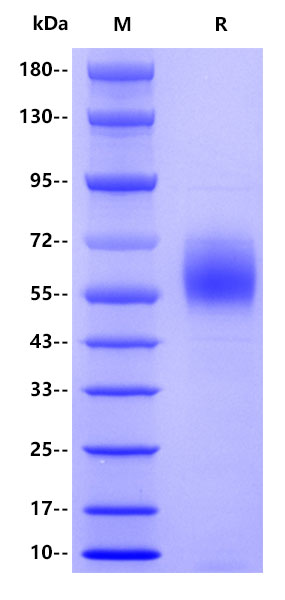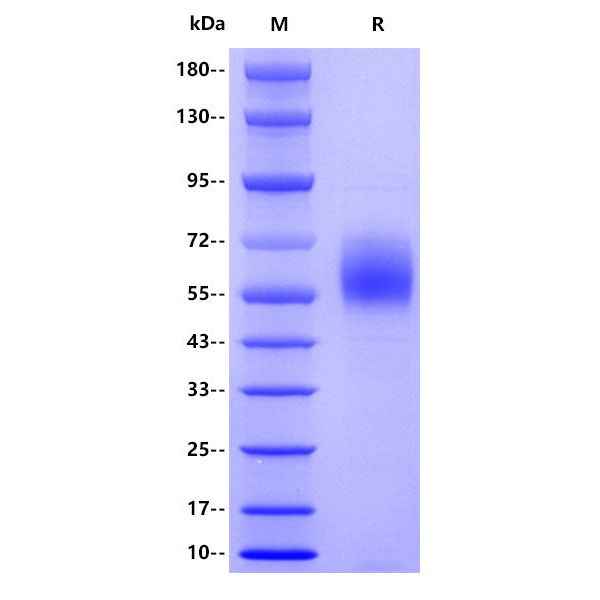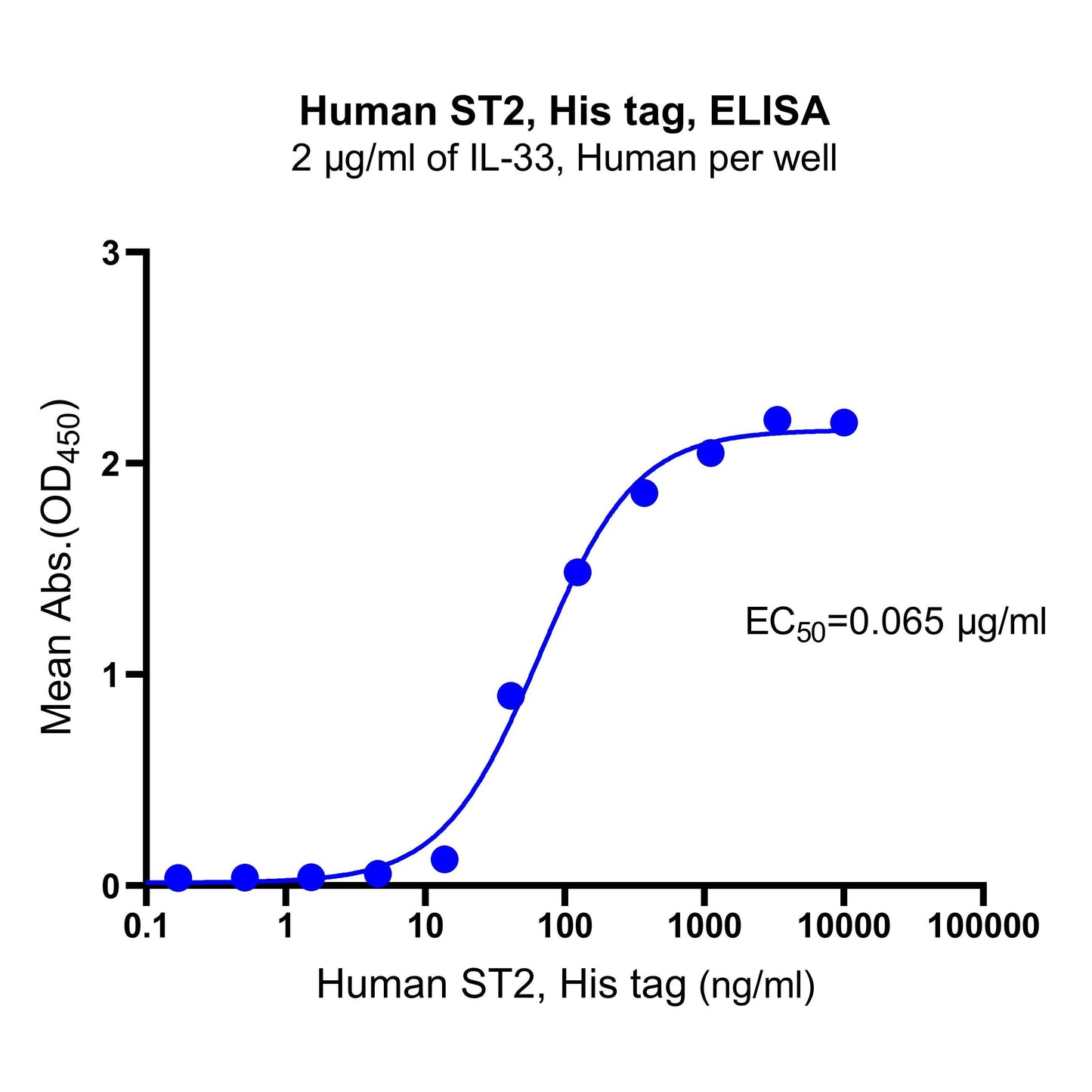Immobilized IL-33, Human at 2 μg/mL (50 μL/well) can bind Human ST2, His tag with EC50 of 0.050-0.086 μg/ml.
Product Details
Product Details
Product Specification
| Species | Human |
| Synonyms | sST2, Interleukin-1 receptor-like 1 |
| Accession | Q01638 |
| Amino Acid Sequence | Protein sequence(Q01638, Lys19-Ser328, with C-10*His) KFSKQSWGLENEALIVRCPRQGKPSYTVDWYYSQTNKSIPTQERNRVFASGQLLKFLPAAVADSGIYTCIVRSPTFNRTGYANVTIYKKQSDCNVPDYLMYSTVSGSEKNSKIYCPTIDLYNWTAPLEWFKNCQALQGSRYRAHKSFLVIDNVMTEDAGDYTCKFIHNENGANYSVTATRSFTVKDEQGFSLFPVIGAPAQNEIKEVEIGKNANLTCSACFGKGTQFLAAVLWQLNGTKITDFGEPRIQQEEGQNQSFSNGLACLDMVLRIADVKEEDLLLQYDCLALNLHGLRRHTVRLSRKNPIDHHSGGGGSHHHHHHHHHH |
| Expression System | HEK293 |
| Molecular Weight | Theoretical:36.6kDa Actual:55-70kDa |
| Purity | >95% by SDS-PAGE |
| Endotoxin | <1EU/μg |
| Tag | His Tag |
| Physical Appearance | Lyophilized Powder |
| Storage Buffer | Lyophilized from a 0.2 μm filtered solution of 0.2M PBS, pH7.4. |
| Reconstitution | Reconstitute no more than 1 mg/mL according to the size in deionized water after rapid centrifugation. |
| Stability & Storage | 12 months from date of receipt, -20 to -70 °C as supplied. 6 months, -20 to -70 °C under sterile conditions after reconstitution. 1 week, 2 to 8 °C under sterile conditions after reconstitution. Please avoid repeated freeze-thaw cycles. |
Background
The ST2 cardiac biomarker (also known as soluble interleukin 1 receptor-like 1) is a protein biomarker of cardiac stress encoded by the IL1RL1 gene. ST2 signals the presence and severity of adverse cardiac remodeling and tissue fibrosis, which occurs in response to myocardial infarction, acute coronary syndrome, or worsening heart failure. ST2 provides prognostic information that is independent of other cardiac biomarkers such as BNP, NT-proBNP, highly sensitive troponin, GDF-15, and galectin-3. One study indicated that discrimination is independent of age, body mass index, history of heart failure, anemia and impaired kidney function or sex.sST2(Soluble ST2) is a biomarker for risk stratification in patients with heart failure (HF) and prognostic assessment. Compared with BNP and NT-proBNP, ST2 is not affected by age, factors such as BMI and renal insufficiency.Different with so many other heart markers, the level of ST2 varies rapidly with the patient's condition. This means that ST2 can help clinicians respond faster. The increase of sST2 level (> 35ng/ml) was highly correlated with the severity of heart failure which can be used to predict readmission and mortality.
Picture
Picture
Bioactivity
SDS-PAGE

2μg(R: reducing conditions)




